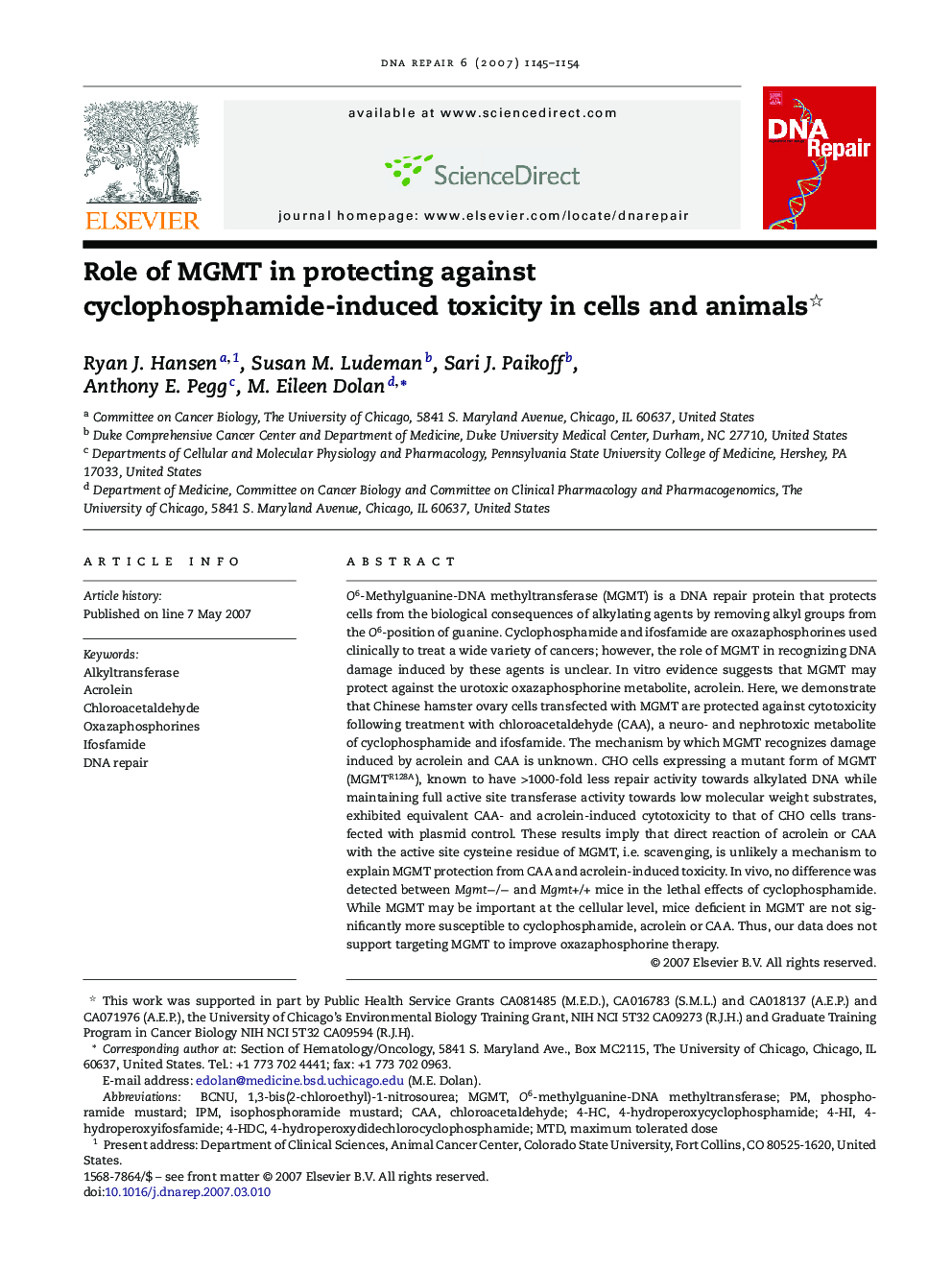| کد مقاله | کد نشریه | سال انتشار | مقاله انگلیسی | نسخه تمام متن |
|---|---|---|---|---|
| 1981410 | 1061928 | 2007 | 10 صفحه PDF | دانلود رایگان |

O6-Methylguanine-DNA methyltransferase (MGMT) is a DNA repair protein that protects cells from the biological consequences of alkylating agents by removing alkyl groups from the O6-position of guanine. Cyclophosphamide and ifosfamide are oxazaphosphorines used clinically to treat a wide variety of cancers; however, the role of MGMT in recognizing DNA damage induced by these agents is unclear. In vitro evidence suggests that MGMT may protect against the urotoxic oxazaphosphorine metabolite, acrolein. Here, we demonstrate that Chinese hamster ovary cells transfected with MGMT are protected against cytotoxicity following treatment with chloroacetaldehyde (CAA), a neuro- and nephrotoxic metabolite of cyclophosphamide and ifosfamide. The mechanism by which MGMT recognizes damage induced by acrolein and CAA is unknown. CHO cells expressing a mutant form of MGMT (MGMTR128A), known to have >1000-fold less repair activity towards alkylated DNA while maintaining full active site transferase activity towards low molecular weight substrates, exhibited equivalent CAA- and acrolein-induced cytotoxicity to that of CHO cells transfected with plasmid control. These results imply that direct reaction of acrolein or CAA with the active site cysteine residue of MGMT, i.e. scavenging, is unlikely a mechanism to explain MGMT protection from CAA and acrolein-induced toxicity. In vivo, no difference was detected between Mgmt−/− and Mgmt+/+ mice in the lethal effects of cyclophosphamide. While MGMT may be important at the cellular level, mice deficient in MGMT are not significantly more susceptible to cyclophosphamide, acrolein or CAA. Thus, our data does not support targeting MGMT to improve oxazaphosphorine therapy.
Journal: DNA Repair - Volume 6, Issue 8, 1 August 2007, Pages 1145–1154